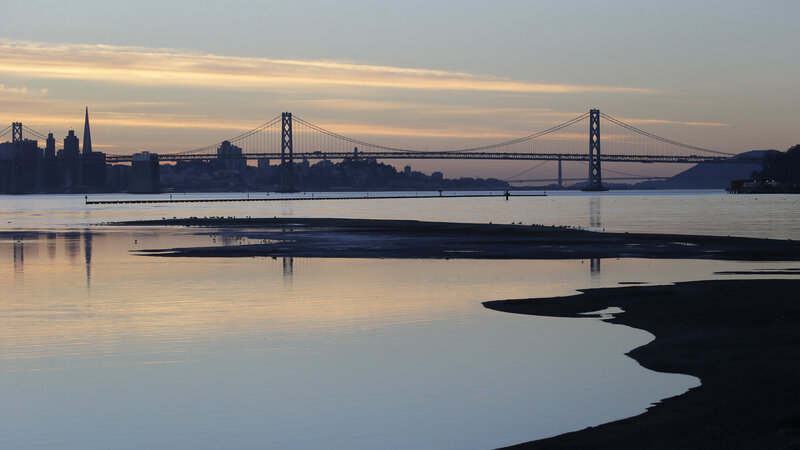By Lauren Sommer, NPR, May 11, 2016
The newest building in Facebook's Menlo Park, Calif., headquarters sits right on San Francisco Bay. Its location offers a spectacular view, but an uncertain future.
By the end of the century, scientists say, sea level could rise three, four, maybe even five feet, depending on how climate change plays out.
Facebook says the company has planned for that, by building above the flood plain.
But roads, freeways and other crucial infrastructure around the bay — $62 billion worth, according to one study — are at risk.
"There's been major pieces of infrastructure that have been underwater in the recent past," says Mike Mielke, with the Silicon Valley Leadership Group. "And that's only a small taste of what's to come."
Measure AA — on the June 7 ballot in nine Bay Area counties — would raise money to protect the region from the expected rise in sea level.
Mielke says the measure, if passed, "would institute a modest $12 a year or $1 a month parcel tax."
And that would be a first. Other coastal cities such as New Orleans have turned to federal grants to protect themselves. Measure AA would tap Bay Area residents to deal with climate change.
The property tax is projected to raise $500 million to defend against sea level rise by restoring marshes.
"The marshes are a great buffer because the plants in the wetlands slow down the wave action and reduce the flooding," explains David Lewis, executive director of the environmental group Save the Bay.
The challenge for supporters of Measure AA is to convince voters who live an hour drive from the bay — nowhere near the shoreline — that it matters to them.
And some opponents, such as Jon Coupal, president of the Howard Jarvis Taxpayers Association, see a big problem with the proposed tax.
"Whether it is a struggling farm worker family in a very modest bungalow in Gilroy, or the Apple campus there in Silicon Valley [the tax is the same]," Coupal says. "So obviously there are equity issues."
Supporters say the measure would help the entire Bay Area, not just tech companies. If it passes, it could be a model for other coastal cities looking for funds to deal with rising seas.
"This is a very tiny tax shared by a lot of people that generates a huge amount of benefit," says Lewis of Save the Bay, "for San Francisco Bay, for people and wildlife."

No comments:
Post a Comment